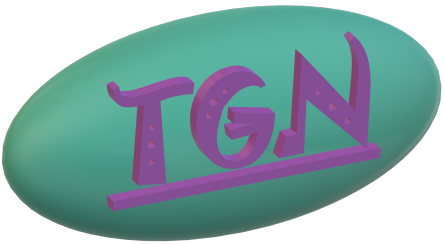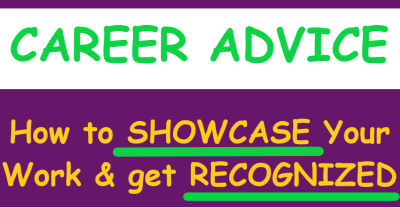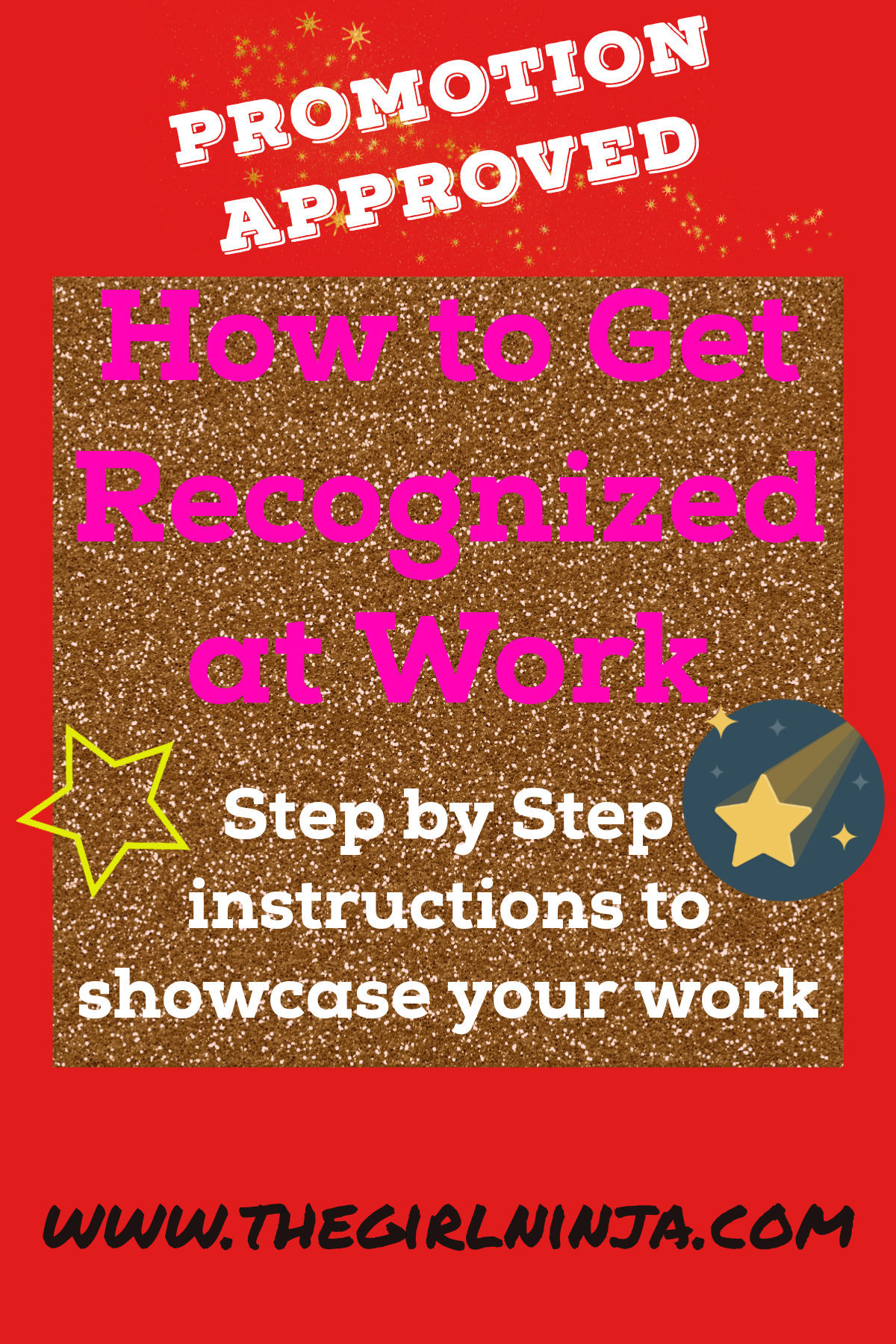
One of the biggest mistakes we can make in our career is to NOT showcase our work. I don’t know about you but coming from a family that lived in poverty we were told to be grateful for what we got, and if we wanted more to work harder. In addition, as a female I heard from almost everyone that girls and women are expected to be modest.
To this day when I think about talking about my work I hear women in my head warning me, you will sound so unladylike, nobody likes a showoff, don’t boast. I wish I could say this was just a me problem, but research has shown this is a problem society has bred into our women. I believe it goes beyond women, I think class is also a contributing factor. In particular as I mentioned above individuals coming from a class below middle, like the working class families also struggle with how to showcase their work. Working class families are raised to believe that they only need to work harder if they want more. Hard work pays off, that is the lesson of the working class.
In the professional world though, hard work is not enough. As a matter of fact not only is hard work not enough, but you are expected to boast or showcase your work to advance your career. The career advice we will discuss here, is how do you showcase your work without coming off as unprofessional?
There is an art to professionally showcase yourself. You will need to learn the professional strategy of when and where you want to showcase your work, as well as what work to showcase. Below is a list of career advice that details what you need to do to showcase your work. The list assumes you have an accomplishment already that you want to showcase, if you are not sure what work you want to showcase you can find suggestions near the end of this post that talks about career accomplishments. Below the list you can find a detailed description of each item on the list.
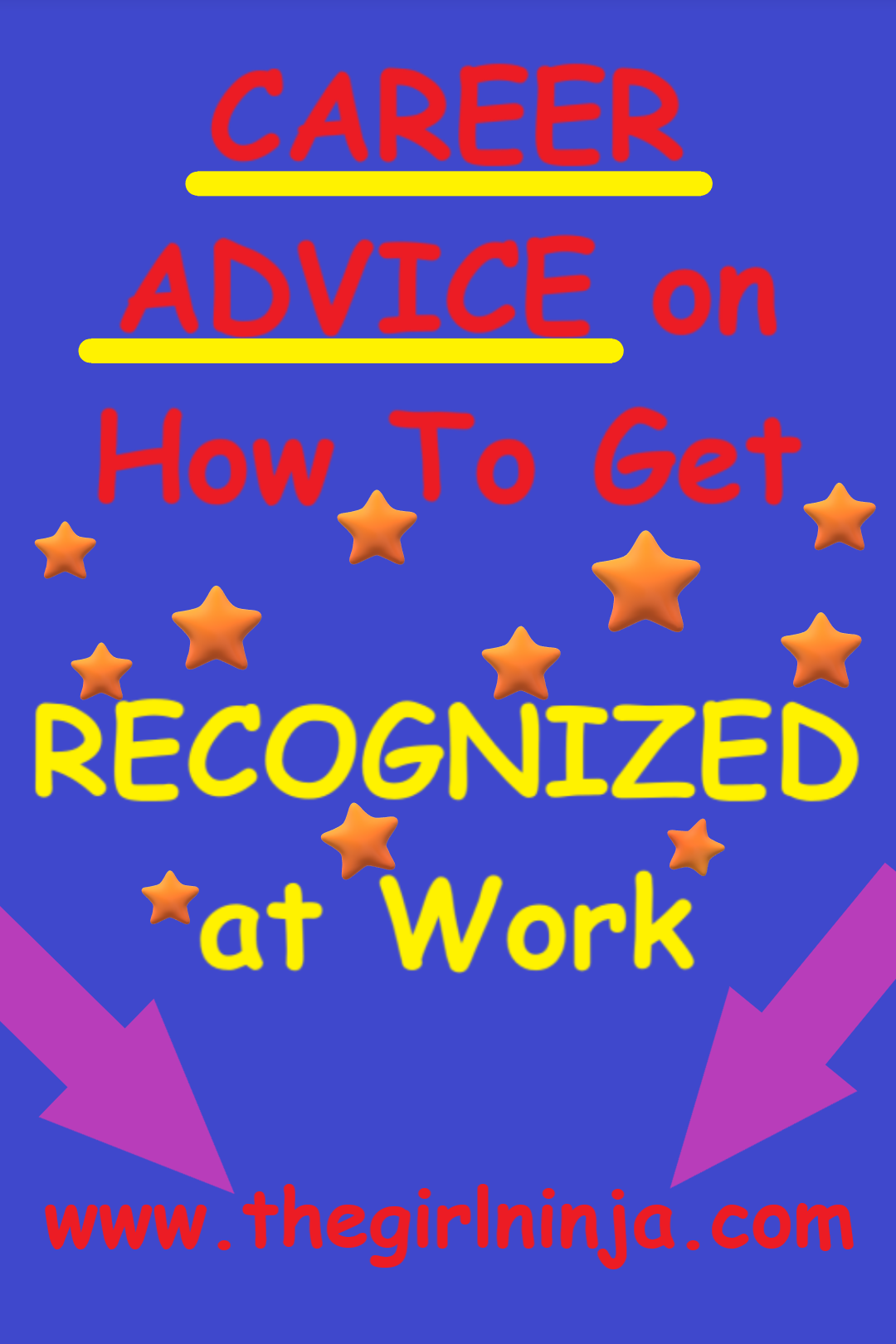
1: Identify Target Audience
2: Communication Venue(s) & Communication Strategy
3: Formats To Showcase Your Work
4: Alignment
5: Showcase Expectations
Identify Target Audience
Now, before we all go boasting about our accomplishments, there is a professional way to go about showcasing your work. Before we go over strategic showcasing we first need to ask who our audience is. Obviously, the more people that know your work accomplishments the better, but if the majority of your colleagues that know of your accomplishments are at your level, then you might not see any results.
Typically you want to showcase your work to get more responsibility, different opportunities to expand your experience, or to get a promotion. So, your main audience should be the individuals at your place of work that decide who gets what responsibilities, give opportunities, and decide on promotions. Other individuals you want to include in your audience are feedback providers. If your company does performance reviews or collects feedback on your work be sure to showcase your achievements to individuals that will be providing feedback for your work.
Now that we understand who our target audience is, identify the individuals part of your target audience. Who your target audience is, is is not innate information that everyone is expected to know. Often your target audience is not obvious. To know this information you should ask your manager or mentor to explain to you how feedback is collected, and who decides if you get a promotion or not. In most cases the individuals in your target audience will be panels of individuals so you will most likely have a target audience of 10+ individuals. (If you do not have a mentor, you can go here for career advice on how to get a mentor)
Communication Venues & Strategy
Whether you have 2 or 20 individuals as your target audience your goal is to identify a communication strategy that will reach your target audience. Your communication strategy identifies places where you can communicate your accomplishments. To be clear, showcasing your accomplishments in conversations with one individual at a time is very rarely successful or tactful.
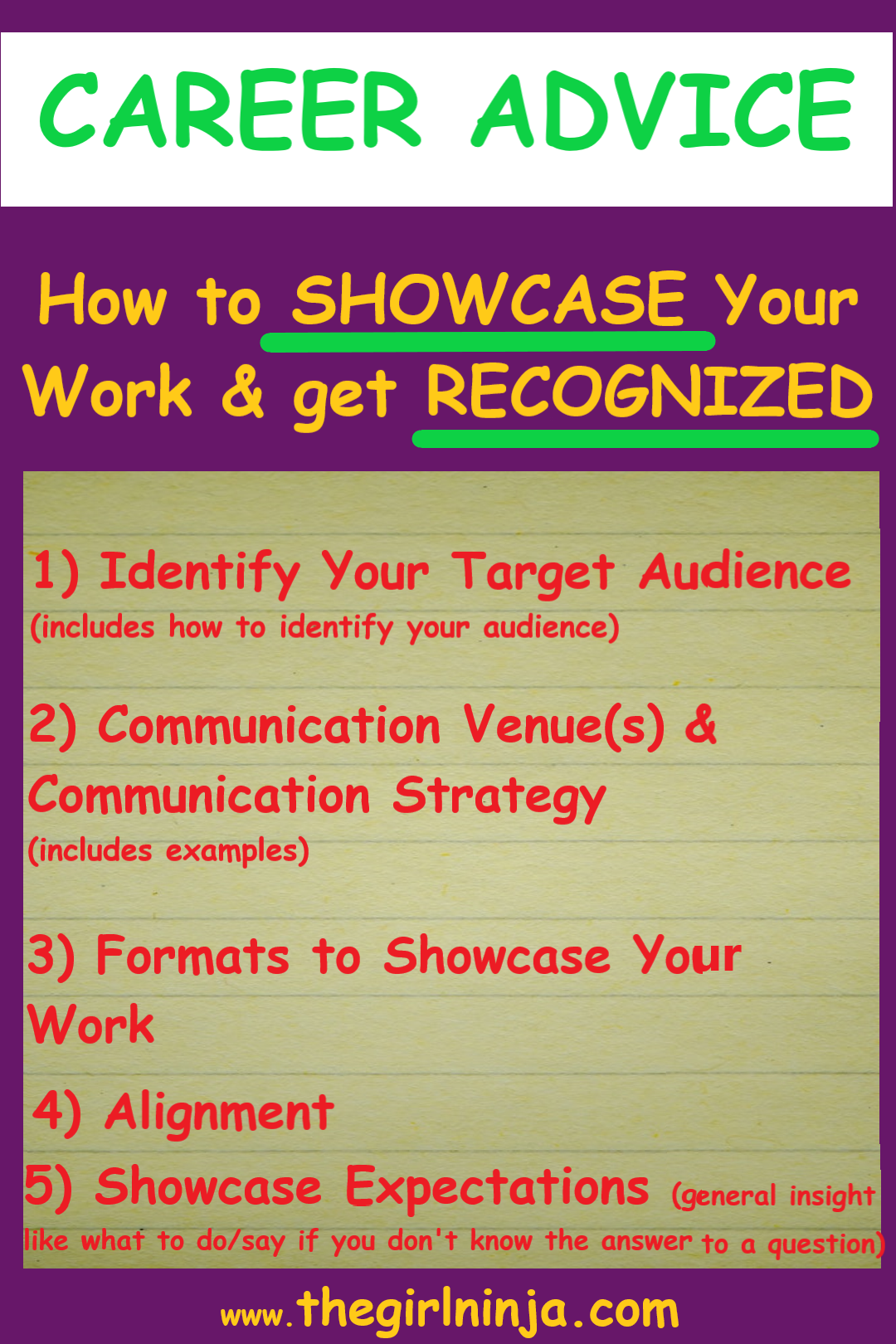
Obviously everyone’s place of work is different, so if you feel strongly that one on one communication is best, know that this can be done. Be sure that it fits into the conversation, this may mean that you need to say something like “I have this work that I feel like is an amazing accomplishment, I would really like to hear your thoughts on it. Do you mind if we set aside some time for me to share it with you?”
Your communication strategy should include more than one place to showcase your accomplishments when possible for the best use of your time. Examples of what to include in your communication strategy include conferences, publications, work groups, meeting series, newsletters, poster presentation, or escalation meetings. The goal of your communication strategy is to showcase accomplishments to as many different individuals in one place as possible. Of course, there might be a little overlap from one venue to another, but if the majority of your audience is unique then sharing the same accomplishment at multiple venues is encouraged.
When you showcase your work you will want to be prepared to quickly summarize the problem statement, the outcome, any challenges you overcame, and the impact. Also try to anticipate what questions you will get, it is best if you practice your showcase with someone else, and ask them to think of questions to challenge you.
Formats To Showcase Your Work
Your showcase itself can be in many forms. You will need to assess your communication venue to select the most appropriate form to showcase your accomplishment. Some examples of how to showcase your accomplishment include the following: a poster presentation, PowerPoint presentation, announcement via email or newsletter, article summary, report, or memo.
Alignment
A critical piece of showcasing your accomplishments is where you start showcasing. Ensuring that your immediate team members and manager are aligned with your showcase is critical to your success. Imagine, you are showcasing your accomplishment to a large audience including your manager and team, and afterwards your manager and immediate team members have many questions for you. Some questions are good from your immediate team, but many questions show a lack of team communication, and that is not what you want the focus to be on.
In addition to ensuring your immediate team is aligned with your showcase, vetting your showcase to your immediate team first can often help you be better prepared for future showcases. Specifically the questions your immediate team raises in your showcase can help you identify if there are any gaps that you should fill in before showcasing, and prepare you for questions to expect in later showcases. So, if at all possible include presenting your accomplishment (the same way you will at other venues) to your immediate team and manager first.
Showcase Expectations
During all your showcases, whether it be with your manager, immediate team, or multiple departments always welcome questions. As part of your showcase you should openly state that you welcome questions, specifically you will want to clarify if you want your audience to ask questions throughout your showcase or if you want them to wait until the end. By verbally making your expectations clear to an audience you are showcasing your communication skills, and makes your audience more comfortable knowing what is expected from them. In addition, welcoming and responding to questions with a positive attitude showcases your collaborative and team player skills.
What do you do if you don’t know the answer to a question?
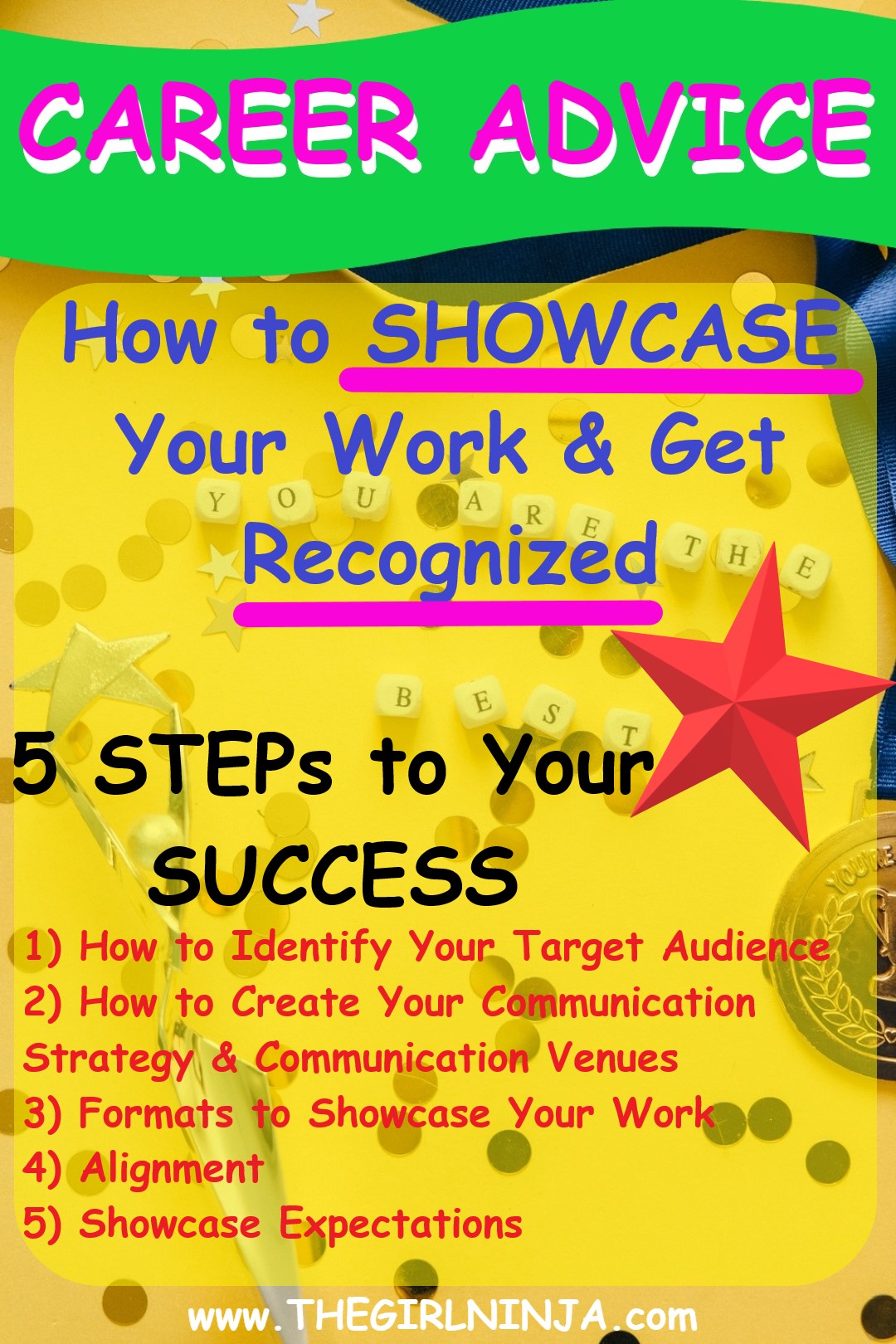
If someone asks a question you do not know the answer to, remain calm. No one expects you to be all knowing. Thank the individual for the question and state something like “Great question, I do not know the answer to your question, and will follow up with you after this to further discuss” or “Great question, I do not know the answer to your question, but hope to find the answer to it in my future work”. If someone asks a question for a detail about your work that you know you should know the answer to, but do not in that moment, again do not panic, remain calm. Respond to these questions with a statement like, “That detail is in my notes, I can look it up and send you the answer after this”.
Another expectation you should have going into your showcase is that you will want to connect with your audience. A good way to connect your work with your audience is to showcase how your accomplishment/work compliments your audience’s work. If this is a smaller team meeting or department presentation then simply displaying or talking about how the work you are showcasing fits into the department’s book of work or goals is good enough. If you are talking to a larger audience you can include a cost savings analysis or risk assessment. Everyone always wants to hear about how to save money and reduce risk.
Well, that should get you started. Keep in mind that this is a process. To successfully showcase your work you will want to have regular conversations with your team and team leaders to understand how your work fits into the larger business need as well as their goals. Through the discussions you have with your team you should be building a trusting relationship that will support you through your journey to showcase your work.
Check out this post to learn how to use work accomplishments to ask for a raise
Below find other CAREER ADVICE posts

